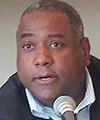 |
| Ben Finzel |
It's June 2023 and it’s Pride Month (although Pride is celebrated year-round, many celebrations are held this month and June is when most marketers “pay attention” to the LGBTQ community).
Despite the temporary rainbow logos and Pride flags displayed online, there is a growing silence from companies and organizations that were previously loud and proud in their vocal support of LGBTQ people. It’s being termed “pinkhushing” to echo the “greenhushing” we’re also seeing from companies who are now going quiet on promoting their sustainability goals and advocacy.
What happened? Bigotry happened. Fear happened. Hatred happened.
A vocal minority has begun pressuring—bullying, in fact—corporate supporters of LGBTQ equality into silence. They are threatening not just boycotts, but vandalism and physical violence against employees. And then they are blaming the victims of these threats—the LGBTQ community—for inciting this hatred. It’s a vicious cycle and it’s getting worse.
Fear is strong motivator with terrible consequences. Political figures are using LGBTQ people as scapegoats for their political aims. Legislators in states across the country have introduced hundreds of bills to deny equality to LGBTQ people, to take existing rights away and to block access to rights such as healthcare and equal treatment under the law. It’s a scary time to be different. And LGBTQ people and people of color are bearing the brunt of these attacks.
But it doesn’t have to be this way. We know what to do. Bullies back down when they are called out. Bullies stop their harassment when others stand up to them. Bullies are silenced when society shames them.
Companies and brands should address this situation the way one would address a bully. They should call this vocal minority out for what it is and what it’s doing: sowing hatred, fear and division. They should stand up to opponents of equality by publicly restating their support for LGBTQ people and their opposition to efforts to infringe on our freedoms. They should shame this small, but vocal minority by reclaiming the values of independence, dignity and equality that the overwhelming majority of Americans share.
For companies and brands that have previously been vocal supporters of equality, here’s what that should look like in practical terms:
- Stand up for your LGBTQ employees by restating your support for them and explaining why that support is part of your brand identity and always will be.
- Support your LGBTQ employees by explaining that you will prosecute any attempts at violence to the full extent of the law and will not tolerate physical violence or threats of violence and then back that up with security and other steps if needed.
- Look at your internal policies and adjust those that don’t reflect true equality and equity for all of your employees.
- Examine your corporate support and determine how supporting anti-LGBT politicians and organizations makes sense given your support for LGBTQ equality (hint: it doesn’t).
- Remember that the overwhelming majority of Americans are not hateful, mean-spirited, divisive people; they need you to be good corporate citizens and to appeal to their American values of freedom, equality and liberty for all. When you do, the majority of people will follow you and you will reap the rewards in brand loyalty and respect.
It’s not pie: equal rights for all does not mean less rights for some. And it’s not difficult. It’s just common sense.
But let’s be clear: simply changing your corporate logo to a rainbow and remaining silent on the continued attacks on our community won’t cut it this year. Companies and organizations are going to have to take a side in this conversation. And in doing so, it will be important to remember that sometimes the two sides in a conversation are right and wrong, not just two different “opinions.” That is certainly the case in terms of LGBTQ equality.
In years past, we’ve had conversations about “rainbow washing”—companies and brands taking performative steps to sound supportive of LGBTQ equality, but not really committing to it beyond the month of June. This year, we’re having a different conversation. This year it’s about those seeking to wash us away in a tide of vitriol and hate. This year it’s about manufactured outrage about books and drag queens and LGBTQ kids. Yes, we want you to publicly express your support for us. But we also want you to recognize that for many opponents of equality, the conversation now is about our right to exist.
For those of us in the LGBTQ community, this conversation is personal. It’s not just about an abstract concept or a corporate press release: it’s about our lives and our right to live freely in the greatest democracy in the world. Human rights should not be up for debate. But they are. And the way to cease that debate and move the conversation back to bringing people together is to talk about values and to match those values to concrete action focused on lifting people up and promoting what we have in common, not tearing us down and seeking to divide us.
As communicators, we have a special responsibility to help guide the national conversation around LGBTQ issues. This means speaking up when we hear clients making mistakes or downplaying LGBTQ issues. And it means encouraging clients not to shy away from the tough conversations. For communicators who are not LGBTQ, it’s called being an ally. And we need all the allies we can get right now.
***
Ben Finzel is president of RENEWPR in Washington, D.C, an NGLCC-certified LGBT Business Enterprise focused on energy, environment and equity communications. In 2003, he co-founded FH Out Front, the first global LGBTQ communications practice at an international PR firm (FleishmanHillard). In 2019, he co-founded The Change Agencies, the first national network of multicultural and LGBTQ-owned and operated PR firms. He was inducted into the PRSA National Capital Chapter Hall of Fame in 2021. He is the founder of DC Family Communicators, a professional networking group for LGBTQ communications professionals in the Nation’s Capital Region.


 It's easy to spot whether a company's commitment to DEI is genuine or merely performative. Just as companies face backlash for neglecting DEI, they're now under scrutiny for their lack of proper understanding and action.
It's easy to spot whether a company's commitment to DEI is genuine or merely performative. Just as companies face backlash for neglecting DEI, they're now under scrutiny for their lack of proper understanding and action. Executing DEI is not just a nice to do for agencies today, but a critical need for their business success, according to Ben Finzel, president of RENEWPR and founding partner at the Change Agencies.
Executing DEI is not just a nice to do for agencies today, but a critical need for their business success, according to Ben Finzel, president of RENEWPR and founding partner at the Change Agencies.  Public corporate boards in the 21st Century need major change if they want to mitigate big risks in 2024.
Public corporate boards in the 21st Century need major change if they want to mitigate big risks in 2024. Latondra Newton has quit her chief diversity officer job at Walt Disney Co. to pursue other endeavors.
Latondra Newton has quit her chief diversity officer job at Walt Disney Co. to pursue other endeavors. The so-called model minority myth often masks the issues and stereotypes that prevent AAPIs and AAPI women from being promoted into positions of leadership. Here are three ways that the communications industry can work to change that situation.
The so-called model minority myth often masks the issues and stereotypes that prevent AAPIs and AAPI women from being promoted into positions of leadership. Here are three ways that the communications industry can work to change that situation.


 Have a comment? Send it to
Have a comment? Send it to 
No comments have been submitted for this story yet.